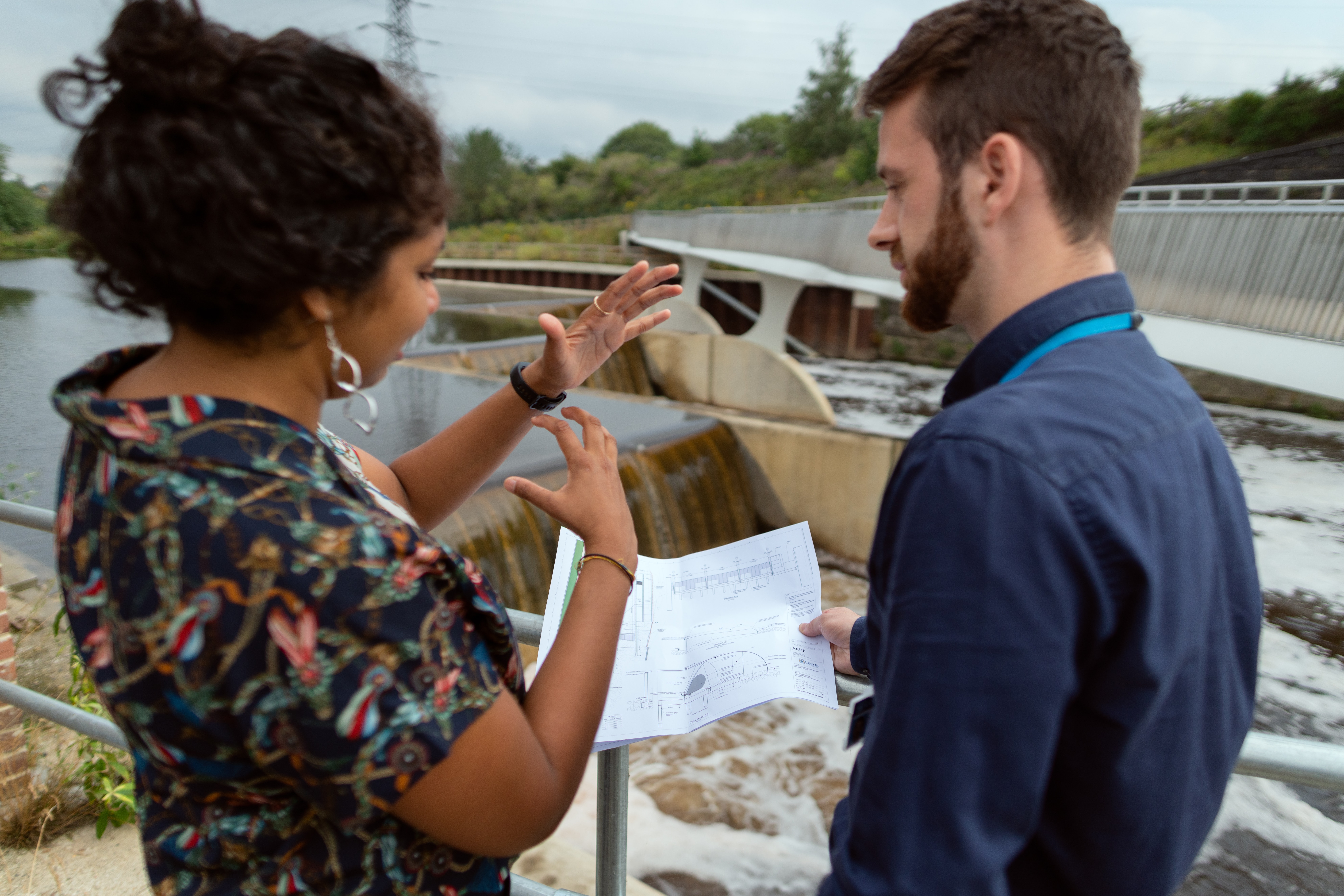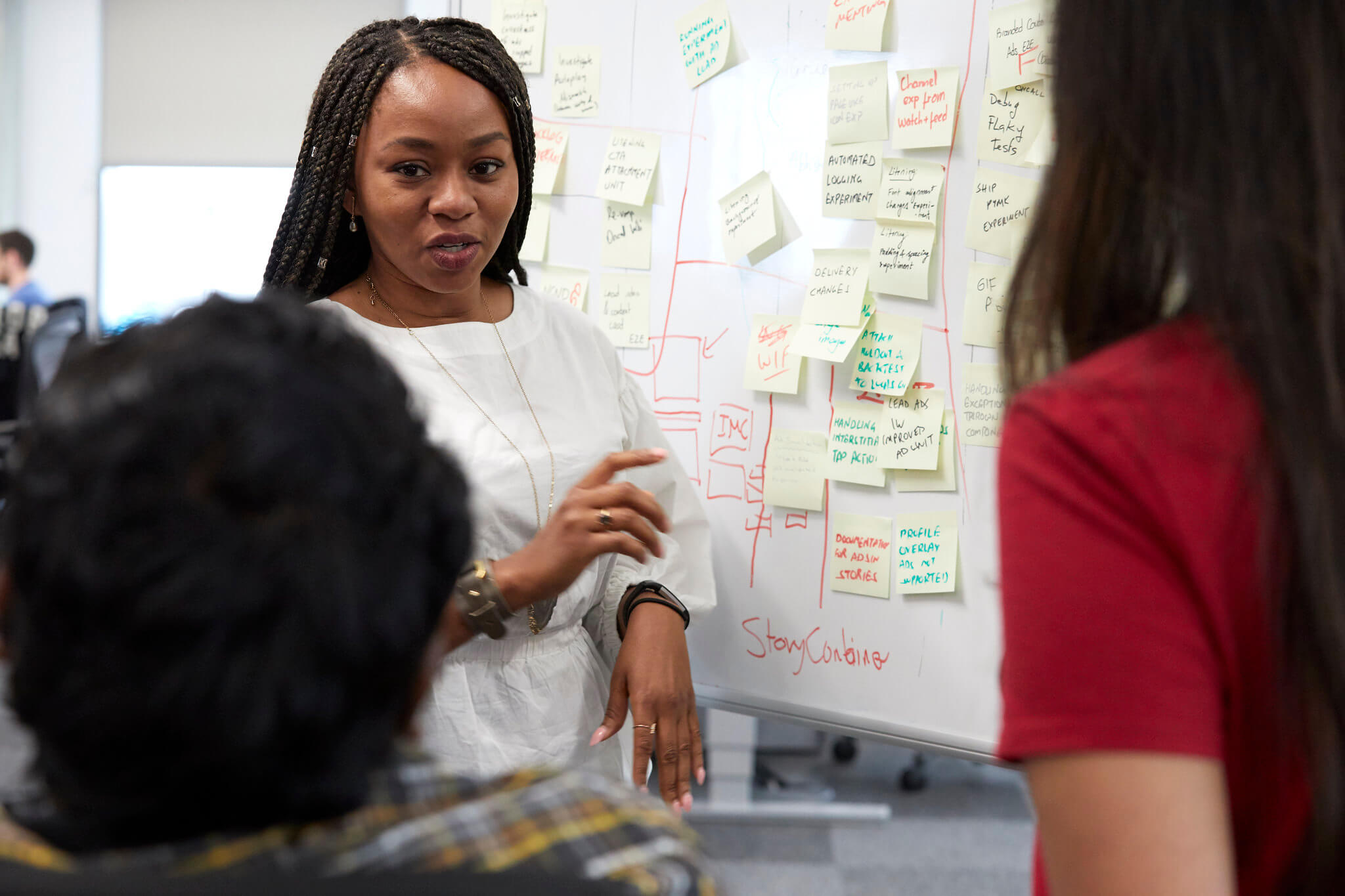’Sustainability’ can mean different things to different groups, but it is almost always an important objective for any research project that tackles global challenges. This guide summarises the lessons that Frontiers programme participants have learned about how teams can successfully build and foster both environmental and logistical sustainability in their research programmes. Through a special workshop, participants discussed varying definitions of sustainability, hurdles encountered with sustainable building, and how to consider the design and end phases of a project right from the start.
Principles
Understand sustainability
Defining sustainability in the context of the project can ensure that all partners are on the same page, so it is important to consider it from the outset of a programme or collaboration. For example, Definitions could include:
- human sustainability: the capacity of collaborators to invest their time and energy into a project to its completion or for a continuous duration, depending on the project
- social sustainability: the compatibility of a programme with a local environment.
- economic sustainability: the continuation of the financial resources needed to execute a programme
- environmental sustainability: the impacts that a project will have on the environment, such as wasted resources and emissions.
Anticipate hurdles
Although essential, incorporating sustainability in projects can be a challenging task. There are cascading budgets, time and human resources that need to be considered from the planning stage to a project’s conclusion, while it is likely that external factors will change things and impact progress. Considering the following potential hurdles in the planning stage may help:
- Finite funding can limit the scope of the project. When funding is scarce, researchers may have to make difficult decisions on project priorities.
- Continuity is critical for projects to have lasting impacts, but between funding, changing collaborators and evolving local environments, maintaining continuity can be challenging.
- Perceived conflicts of interest often arise when working with governments or businesses. For example, there is sometimes discomfort around working with entrepreneurs on water projects given that it is an essential service.
- Resource use and waste can be high in research projects. Exported waste does not necessarily mean they are being dealt with or reused sustainably. Considering the impact of the resources that the project will use, mitigating waste where possible, and procuring materials from sustainable sources where possible can help minimise unsustainable practices.
- Knowledge of sustainability can vary across different organisations, people and funders. Where necessary, time to build understanding of sustainability can be embedded into the methodology.
- Hard deadlines can reduce the impacts of a project and any sustainable processes employed. For instance, unexpected impacts like disasters or political instability can slow data collection and project timelines. Where it is possible, building buffer time and flexibility into the timeline may benefit the overall outcomes.
Skills and capabilities
Researchers and innovators working in an international and interdisciplinary way will need a wide breadth of capabilities and knowledge from their partners in different fields. Important tools or competencies may require investment or time to develop. Some important considerations are that:
- skills vary from project to project, for instance IT skills or business experience. Connecting with collaborators who have the skills a given project needs is important
- links with local NGOs and community groups can help build trust and relationships with local communities to have better impact
- strong but flexible frameworks can allow for projects to adapt as needs and environments change
- adopting longer timelines can help researchers be prepared for any future roadblocks, consider long-term impacts on the environment and community, and ensure collaborators can maintain their commitment.

Tools and tips
- Embed the community as collaborators from start to finish, and ensure they agree with the solutions proposed.
- Address real problems in a practical way. Work with the community to understand the problems they face and the solutions that can help while avoiding making assumptions.
- Use business models. Partnerships with business can help turn research into employment opportunities. Profits can incentivise the continuation of a service.
- Creating jobs and opportunities for local communities is important for a project’s sustainability.

- Establish key performance indicators that measure progress and keep the project on track.
- Encourage a variety of skills and backgrounds among collaborators. Employ a multidisciplinary approach to make the most of a wide array of capabilities.
- Consider potential risks and create mitigation strategies in the planning phases of a project.
- Understand methods to improve environmental sustainability. The principles of biomimicry, for instance, can help minimise impacts.
Resource recommendations from symposia participants
Participants identified several helpful resources:
Interested in exploring more Frontiers' resources ?
For more insights, tools, and tips like the ones in this report, check out all the Frontiers content available in our resources section
